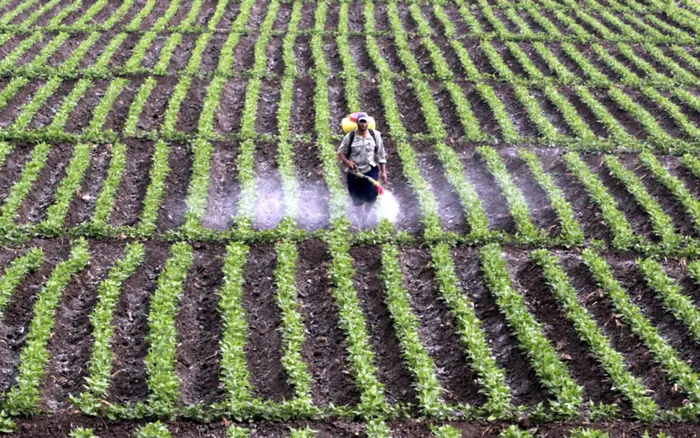Department of Agriculture to fully digitise pesticide registration by 2026
AGRICULTURE

The Department of Agriculture (DOA) said on Thursday that applications to register pesticides will be completely digital from April 2026.
Image: Khaled Elfiqi
The Department of Agriculture (DoA) has announced that all pesticide registration applications will move to a fully digital system by April 2026, marking a major step in modernising agricultural regulation and improving efficiency across the sector.
In a statement last week, the department said the transition follows years of preparation to replace the manual, paper-based registration system that has long frustrated applicants seeking approval for products such as insecticides, herbicides, nematicides, and rodenticides.
The registration and sale of these products are governed by the Fertilizers, Farm Feeds, Agricultural Remedies and Stock Remedies Act, 1947 (Act No. 36 of 1947), which requires the department to assess, register, and monitor all agricultural remedies used in South Africa.
“Previously, applicants had to travel to DoA offices to file paperwork manually, a lengthy and often frustrating process. By going digital, the department is eliminating unnecessary delays and creating a ‘fast lane’ for companies that comply with requirements from the start,” said Minister of Agriculture, John Steenhuisen.
The department launched the online application platform in December 2023 and has since piloted the system with industry stakeholders while conducting training sessions to prepare users for the full rollout.
The new system allows applicants to:
Submit and register products online;
Track application status in real time; and
Generate public reports and access lists of registered pesticides.
Steenhuisen described the digitisation initiative as a milestone in the department’s broader effort to modernise agricultural governance and improve service delivery.
“Automating the Agricultural Inputs Control System is a crucial step towards efficiency, accountability, and transparency. The system will ensure compliant applications are processed quickly while identifying non-compliant submissions upfront,” he said.
“The rollout will initially focus on pesticides and will expand to include other regulated agricultural inputs over time. The department is confident that the new system will significantly improve turnaround times, strengthen compliance, and build greater trust between industry and the government.”
The DoA confirmed that it will no longer accept manual applications after 1 April 2026 and encouraged companies to begin using the online system immediately.
The move has been broadly welcomed by the agricultural sector.
General Manager of TLU SA, Mr Bennie van Zyl, said that this was a great move by the DoA.
“It’s great news for companies that want to register their chemicals and pesticides,” Van Zyl said.
“Previously it was difficult for companies to register their pesticides; they used to have no outcome on their application for a lengthy period of time. Remember it's a big problem as these companies want to make a contribution to the agricultural sector.”
Francois Rossouw, CEO of Southern African Agri Initiative (Saai), said that this was a welcome step toward faster and more transparent processes.
“For years, delays in registrations and permits have hampered farmers’ ability to access crucial agricultural inputs. While the online system may help to speed things up, it is important to be clear: government systems alone will not solve the underlying challenges,” he said.
Rossouw said there is currently only one technical expert in the Registrar’s office to review thousands of applications.
“Some applications have been left waiting for as long as eight years, and in correspondence to applicants, the department has openly admitted that these registrations are not a priority,” he said.
“This bottleneck has a devastating effect—it blocks innovation, restricts access to new products, and hampers the competitiveness of South African farmers at a time when global markets are moving forward.”
Rossouw added that Saai was preparing to approach the courts to assist affected applicants because the Registrar’s office was failing to fulfil its mandate.
“Government should not be the stumbling block to growth and innovation. Its role must be to provide a predictable, efficient, and transparent framework, then step back and allow the agricultural sector to deliver the competitiveness, innovation, and food security South Africa so urgently needs.”
BUSINESS REPORT